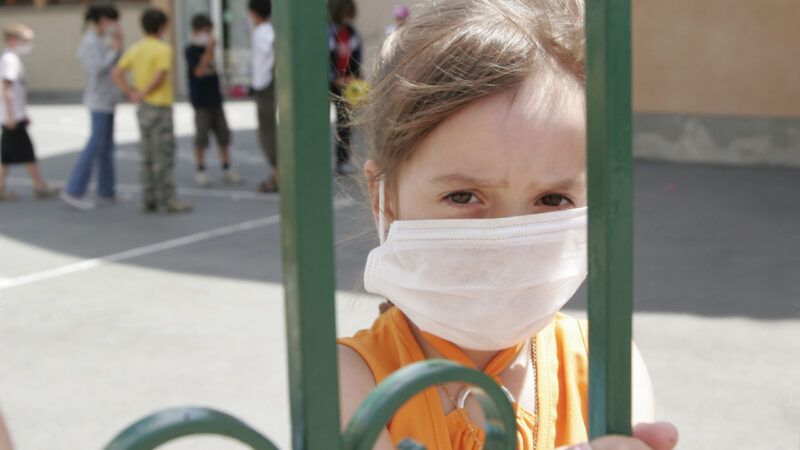Get the Americans With Disabilities Act Out of the COVID Wars
There’s no clean way this applies to the pandemic.

The Southern Poverty Law Center (SPLC) has announced its intention to file suit against a Georgia school district under the Americans with Disabilities Act (ADA) of 1990, on the basis of the district's decision not to require certain COVID-19 precautions. The SPLC argues that children with certain disabilities, who are especially vulnerable to the virus, might not be able to safely access an education in an environment where masking is optional. Therefore, even if most children are at little risk of serious harm from COVID-19, it argues that in order to ensure all children have the ability to attend school, schools must take every available precaution.
The Biden administration has similarly indicated that it believes schools without maximum masking requirements may be in violation of the ADA. The Department of Education has launched investigations in multiple states based on the alleged civil rights violations arising from optional mask policies. At least one federal judge has already ruled that masks are indeed legally required for the protection of students with disabilities.
Any school administrator who is aware of these investigations will be hesitant to lift a mask mandate, regardless of the conditions in his local community. If exposing a child to a respiratory illness is apparently now an ADA violation, it's difficult to imagine that schools will ever again be mask-free environments. Given that initial research suggests influenza is about as dangerous to children as COVID-19, it would be difficult to say the ADA imposes a mask requirement for COVID-19, but not the flu. This will trouble anyone who hopes that we will one day be able to live life as we did before the pandemic.
But legal scholars haven't always agreed that people with disabilities should be given protection from those who have, or might have, COVID-19. In the early days of the pandemic, some speculated that those without immunity to COVID-19 should be considered vulnerable and in need of protection under the ADA. After all, those who are assumed to be potential COVID-19 carriers would be likely to face discrimination from employers and the public at large. Others acknowledged the ADA is in many ways a clumsy tool for dealing with COVID-related social distinctions. A year ago, it was clear enough that social policy should not deliberately create an underclass of citizens who face difficulty in accessing basic services due to their immunity status. Now, administration policy is leaning, little by little, toward making life uncomfortable for those who choose not to get vaccinated.
The ADA covers a broad and ever-widening array of situations. Disability law protects those with cancer, HIV/AIDS, and many mental health disorders—none of which the average person may immediately associate with the idea of disability. Extending the ADA to include COVID-19 protections is tricky at best. The fact that legal thinkers looking at the act have imagined it both as a vessel to protect the unvaccinated and as a tool to protect people from the unvaccinated should be an indicator that the statute does not cleanly apply to this situation.
Yes, parents are in a difficult place right now. It is perfectly understandable that parents of disabled children worry that their kids could face physical harm in their school environments. School administrators who are tasked with providing a safe learning environment for all children might decide that universal mask policies are the best way to accomplish that mission. Other leaders might look at the challenges that masks pose to kids with other learning difficulties. Kids with hearing loss who rely on lip reading to get through the day might have an ADA claim that masking imposes significant barriers to learning. Masks also pose challenges to children who are English language learners.
A safe environment looks different to everyone. If the Biden administration truly believes that the only environment that is safe and conducive to learning for all is one in which all are masked, it can ask Congress to pass legislation mandating masks. Likewise, if red-state governors believe that the only good learning environment is one without masks, they can ask their state legislatures to ban mandates. But the executive branches of our governments should not be acting alone to create such sweeping change in everyday life.
Unfortunately, Biden seems to be following in the path of former Presidents Donald Trump and Barack Obama in seeking to use executive orders and the regulatory arms of the federal government to carry out his priorities. As Congress has mired itself in squabbling and posturing, the powers of the executive branch have crept in to fill the gap that Congress has left behind. The administration's attempt to use a 30-year-old law to control how schools respond to the COVID-19 pandemic is just another symptom of this.


Show Comments (54)